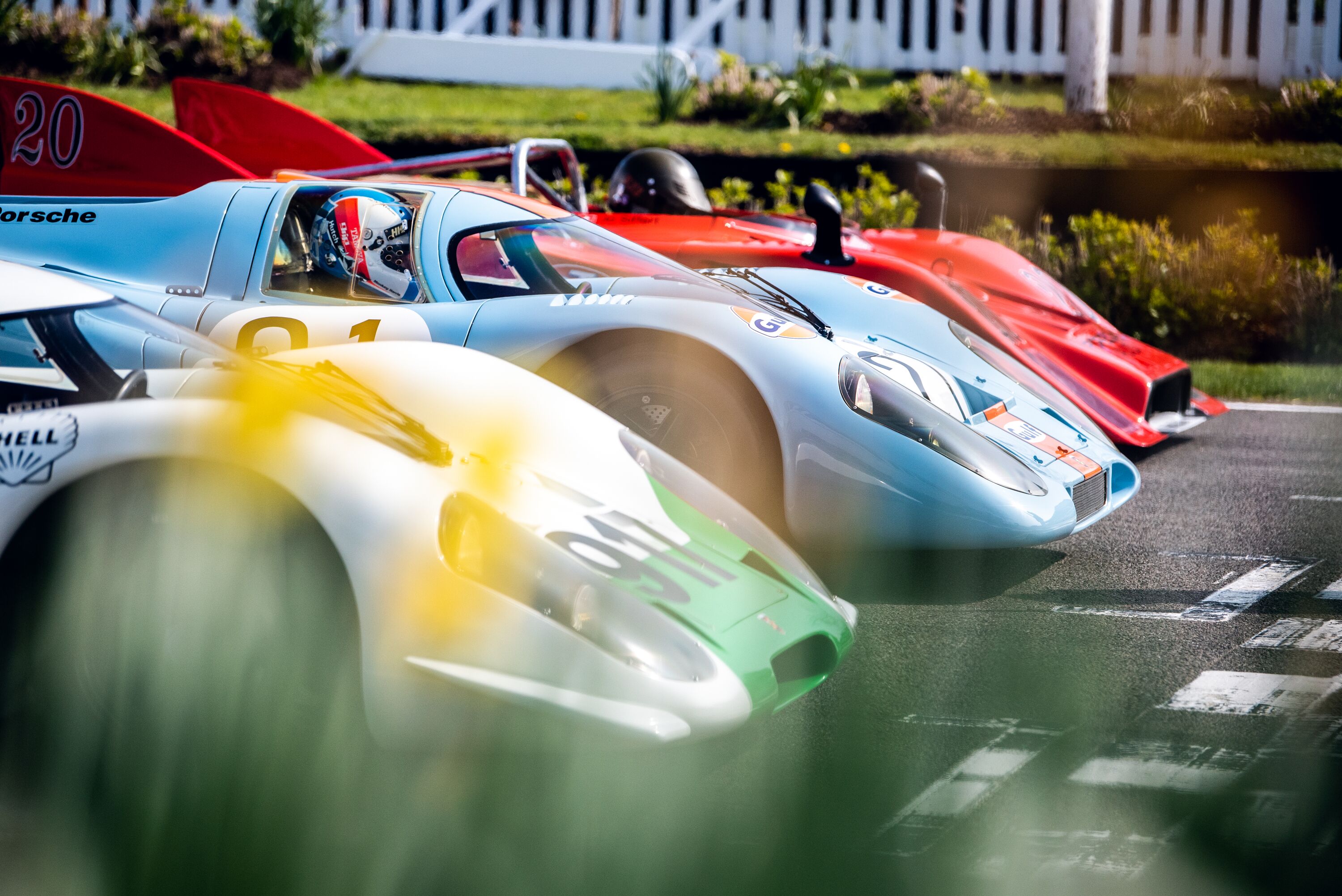Cars you didn’t know shared engines
Making a car is an extremely difficult process. In an ideal world, you have an unlimited budget with no regulations and the best designers and engineers in the world. Of course, it’s rare this golden combination is achieved. In reality, corners need to be cut, regulations adhered to and sacrifices made. This makes for some interesting powertrain-sharing solutions and relations, from the worlds of supercars, to hot hatches. These are the cars you didn’t know shared engines.
Mercedes-Benz S-Class and Pagani Zonda
Obviously, we’ll start with the cars you are almost certain to know shared an engine, but it’s got to be done. The M120 V12 is a famous lump, not a revvy thing but certainly a tower of torque. First used all the way back in 1991, in 600-badged luxury Mercedes, it lives on in exclusive variants of the Pagani Zonda to this day. The story of Pagani’s relationship with Mercedes-Benz is an interesting one. It was actually Juan Manuel Fangio that put Horacio Pagani in touch with the bods at Mercedes way back when.
Volvo XC90 and Noble M600
An unlikely pair but it’s true, the 4.4-litre V8 engine used by thirstier versions of the Volvo XC90 in the early 2000s is what Noble started with for its M600 supercar. Yamaha was brought in to aid its transformation from wafty SUV slugger to roaring supercar monster. To produce that astonishing 650PS (478kW), two turbochargers were added, in addition to beefed-up innards to handle the boost. It also featured clever tuning, including a switch that allows the driver to decide how much power they want...
Renault Espace and Nissan 350Z
It doesn’t matter how humble the origins, if a humdrum family car comes with a chunky engine then it can be adapted into a sportscar motor. Believe it or not that’s what happened between the Renault Espace and the Nissan 350Z. Yes, the VQ35DE of the original 350Z is fundamentally a relation of the Renault V4Y motor, as used in the Vel Satis and Espace. It’s just a shame the Espace is front-wheel-drive and therefore can’t be an unlikely rival to the 350 for drift missile supremacy.
Audi RS3 and Donkervort D8 GTO
Ah yes, another left-field supercar that borrows its engine from the Germans. Far from a Pagani, the Donkervoort D8 GTO looks a bit like what would happen if Brabus built a Caterham. Being the compact open-wheel style a big V12 is probably a bit much. So, a warbling Audi 2.5-litre TFSI courtesy of the RS 3 seems much more like it. Sounds like a mighty recipe to us.
Chevrolet Tahoe and Ultima GTR
Ah yes, perhaps the most famous engine to swap. The GM small block has been a faithful servant of the performance, budget and reliability-minded for decades, especially since the introduction of the LS family in the 1990s. You’ll find them in everything from Camaros and Corvettes, to Cadillac Escalades and GMC Yukons... and the Ultima GTR. Yes, this stripped-out Le Mans racer-aping supercar has an LS sat in the middle. Depending on how old or what flavour of Ultima you have, power can range from 400PS (294kW) to over 1,000PS (735kW). Yet at its core, that engine is similar to what you’ll find in a faithful old Chevy truck.
Ford Crown Victoria and Koenigsegg CC8S
Koenigsegg, well-known mega-car proprietors did, like any supercar maker, have the humblest of origins. While they’re leading saviours of the combustion engine today, time once was they were tarting up Ford modulars to make the numbers. Yes, the CC8S of 2002, gorgeous as it was, packed pony power at its core. Granted, the 4.6-litre V8 often found in the Ford Crown Victoria was heavily modified for use in the super Swede, but the fundamental skeleton is shared. Koenigsegg, among a raft of modifications, slapped a supercharged on and boosted capacity to 4.7 litres. It was effective, producing 664PS (488kW). They even got it to sound quite exotic, too.
Ferrari Enzo and Ferrari 812 Competizione
This is a weird one, as these are both Ferraris. It’s not so much that the newer car borrows the engine from the older car. More, that we want to highlight just how long-lived this engine is. Yes, the 9,500rpm-revving 6.5-litre V12 powering the 2021 812 Competizione started life all the way back in 2002, in the Enzo hypercar. It is of course the Tipo F140 and, between the Enzo and the Competizione, has seen service in the Maserati MC12, 599 GTB, 599 GTO, FF, F12berlinetta, LaFerrari, F12tdf, GTC4Lusso and 812 Superfast. Is there a greater dynasty of 12-cylinder power in modern memory?
Porsche RS Spyder and Porsche 918
Another in-family engine share but with a twist. This time we’re at Porsche and it’s an engine that found a home on the road following an initial stint in racing. It is of course the screaming V8 of the Porsche 918 Spyder, which first saw use in Porsche and Penske’s LMP2 challenger, the RS Spyder. Though blown out from 3.4 litres to 4.6 litres for the road-going car, the architecture is fundamentally the same, including the revolutionary omission of any belts. It produced 608PS (652kW) in the 918, howling up to over 9,000rpm. High as that is for a road car, it’s a reduction on what the racer is capable of. Sounds like a nice two-car garage to us…
Mercedes-Benz G63 AMG and Aston Martin Vantage
Great engines, great engine-builders, are going to get a few mentions, because their motors see action in a variety of places. Granted, AMG’s oats aren’t sown too far beyond Pagani but Affalterbach is found under some other bonnets without the three-pointed star. Namely, these days, Aston Martin. The latest sinewy Vantage sportscar from the storied British marque borrows the well-worn M177 (ironic) 4.0-litre twin-turbo V8 from the Germans, which also sees action in the AMG-tuned G-Class. Can you believe that in the slab-sided truck, it actually produces more power, than in the Vantage. Go figure.
Honda Civic Type R and Ariel Atom
Ah, the Ariel Atom, arguably the craziest road-legal car you can buy. For almost 20 years, Atoms have been powered by Honda Type R engines, both from the revvy K20A era and now with the whooshing turbocharged K20C. The original Atoms went through a number of iterations, including adding a supercharger to that screaming Honda motor for up to 200PS (147kW). Other motors Atoms have used include the Rover K Series for the original, and a 10,000rpm-revving V8.
Toyota, Rover and Lotus
Ah yes, Lotus. A carmaker of many hearts. Just in the last two decades, Lotus has fraternised with both Rover and Toyota for engines. Obviously, for the most part, Toyota power has been in the Elise, Exige and Evora, with the Corolla T Sport four-cylinder and the V6 from the Camry. The first Elise, however, shared a Rover K Series engine with the stately 75 saloon car. All were mighty fine engines. In fact, the supercharged Camry V6 is expected to serve on in the Emira sportscar from 2021.
BMW M5 and Wiesmann MF5
The obscure supercar engine shares continue with this peculiar looking thing, the Wiesmann MF5. This model shares its big, heavy, screamy V10 with the BMW M5. In fact, the entire range of Wiesmanns at the time ran on BMW M Power. A mighty fine little sportscar and we think a tidy alternative to a Morgan or TVR.
Morgan Plus 8 and BMW X5
That is, unless you do just want a Morgan. Because they came with BMW power as well. Under the bonnet of the Aero and Plus 8 models in the 2000s was a 4.4-litre V8 from BMW, most-often found powering the original X5 and the early 2000s 7 Series. Quite a different role it played in a wood-framed alloy-bodied sportscar but it was a faithful beast for almost 20 years. Only in the last couple of years has the V8 made way for BMW’s turbocharged straight-six, which incidentally, also sees use in the Supra. But you knew that already, didn’t you...
Peugeot 208 GTi and Mini Cooper S
This one is just a good old-fashioned case of cost-cutting. As well as powering the Peugeot 208 GTi and numerous other Peugeot/Citroën/DS vehicles, the Prince engine also powered a number of BMWs and Minis. A collaboration announced in 2002, the first higher-powered Prince appeared in 2006 in the 207 RC and THP, before then appearing in the 2007 Mini Cooper S. It then lived on in the facelift Mini, 208 GTi and 308 GTi. A 172PS (127kW) version of the unit even saw service in the F-generation 3 Series between 2012 and 2015. An unlikely venture that yielded an award-winning, if not overly latterly reliable engine and some spritely cars.
Nissan R390 and McLaren 12C
This might be a stretch but it’s too interesting to pass up. Heavily modified though the McLaren/Ricardo 3.8- and 4.0-litre engines are, they are fundamentally based upon a Nissan design. Specifically, the design McLaren bought from Tom Walkinshaw Racing, that was an iteration of the Nissan VRH platform for use in the TWR-developed R390, itself a re-bodied Jaguar XJR-15. What a mouthful, and what an unlikely “family” of cars. But there you go, if you want to sound really cool, you can anecdotally explain how the McLaren P1 can trace a family lineage through to the Le Mans-winning Jaguar XJR-9.
List
Mercedes
S-Class
Pagani
Zonda
Volvo
XC90
Noble
M600
Renault
Espace
Nissan
350Z
Audi
RS3
Donkervort
Chevrolet
Tahoe
Ultima
Ford
Koenigsegg
CC8S
Ferrari
Enzo
812 Competizione
Porsche
RS Spyder
918 Spyder
G-Class
Aston Martin
Vantage
Honda
Civic
Type R
Ariel
Atom
Rover
75
Lotus
Elise
BMW
M5
Wiesmann
Mini
Peugeot
208
Morgan
Plus 8
X5
R390
McLaren
MP4-12C
































































